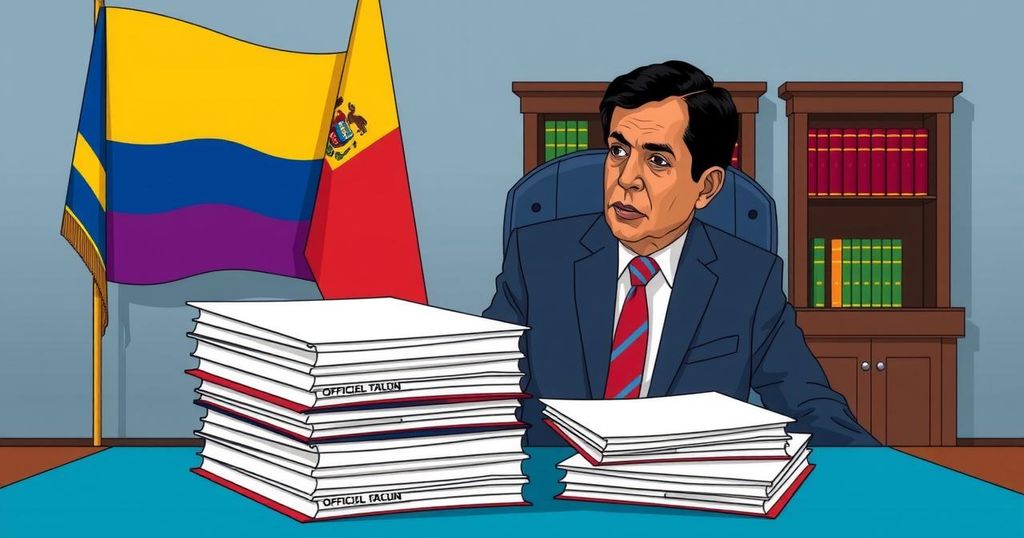Colombia’s Finance Minister Resigns Amid Budget Disputes with President Petro
Colombian Finance Minister Diego Guevara has resigned following disputes over budget cuts. His exit highlights concerns about the country’s public finances. President Gustavo Petro, after significant cabinet changes, is set to appoint German Avila as the new finance minister amid economic uncertainties.
Diego Guevara, Colombia’s Finance Minister, announced his resignation amidst conflicts over budget cuts and following the rejection of a labor reform by lawmakers. His departure, which comes just over three months into his appointment, highlights the instability concerning the nation’s public finances. Guevara disclosed his resignation via a post on X, noting he had a calm discussion with President Gustavo Petro but did not provide a specific reason for his decision.
Sources indicate that disagreements between Guevara and President Petro, who has already replaced a significant portion of his cabinet, led to his resignation. Guevara’s successor is expected to be German Avila, the current head of Grupo Bicentenario, though analysts express concerns regarding Avila’s qualifications for managing public finance effectively.
Banco de Bogota emphasized that constant cabinet changes could exacerbate political and economic instability and may raise uncertainties around anticipated adjustments to the central bank’s interest rates. Following the news of Guevara’s resignation, the Colombian peso experienced a decline of over 1%, marking 4,118 against the U.S. dollar. The government is reportedly considering delaying budget expenditures amid ongoing fiscal challenges that necessitate spending cuts.
The resignation of Diego Guevara as Colombia’s Finance Minister underscores significant uncertainty in the nation’s public financial management. President Gustavo Petro’s continuous cabinet reshuffling, including the impending appointment of German Avila, raises concerns about future economic stability. Additionally, Guevara’s departure coincides with ongoing fiscal challenges and potential impacts on monetary policy.
Original Source: theprint.in




Post Comment